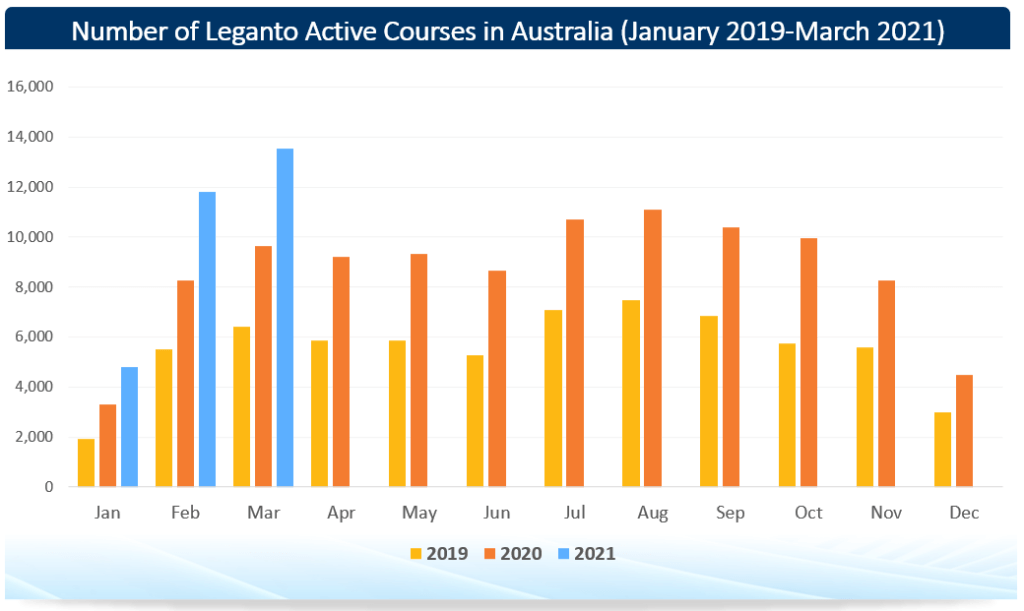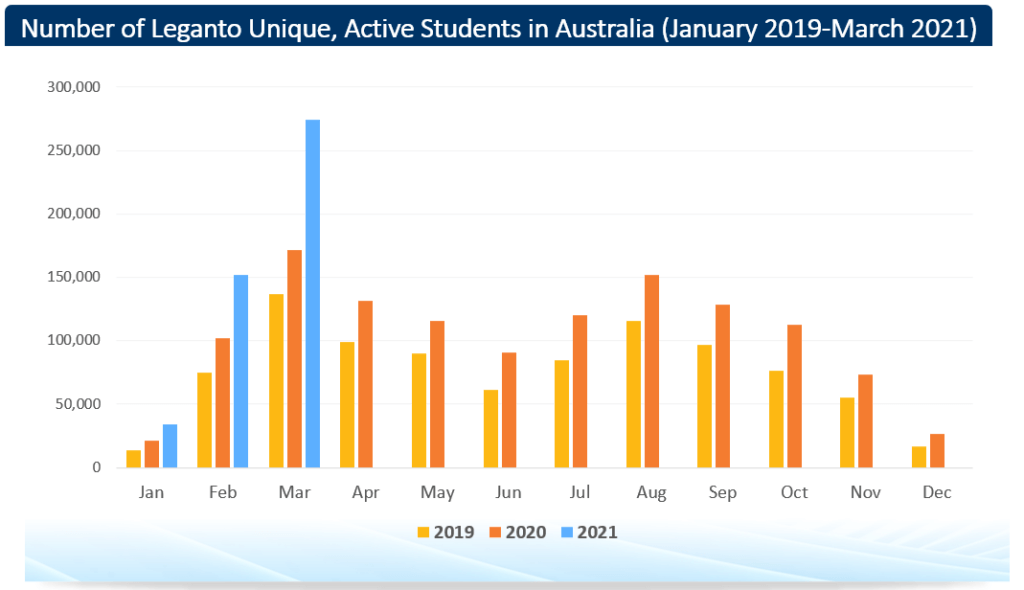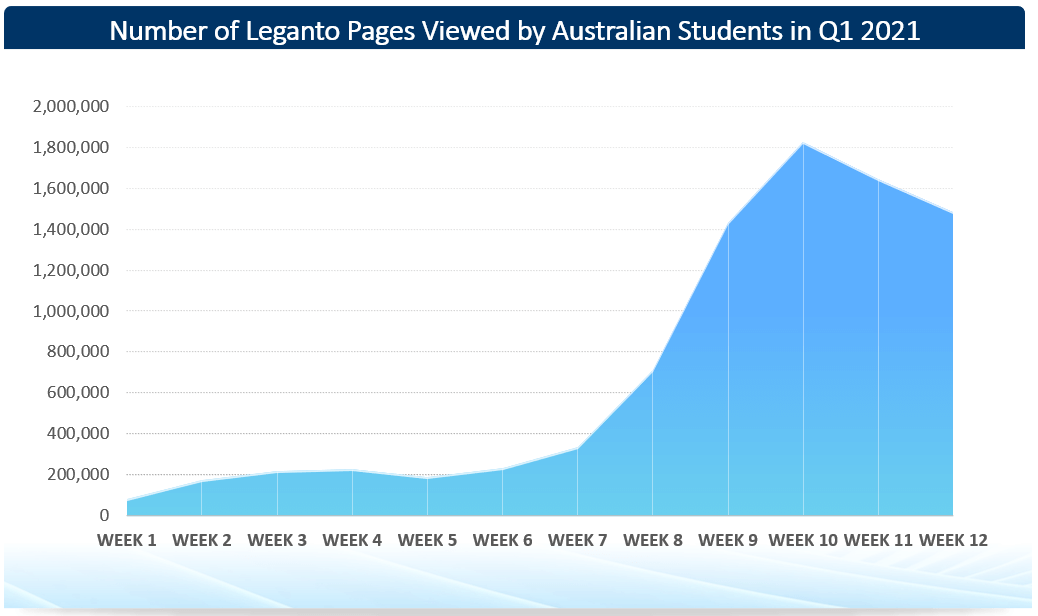Australians are known to be early adopters, and we’ve found that Australian libraries and academics are no exception.
The first countries to adopt the Ex Libris Leganto resource list management system were Australia and the United Kingdom. There were several early adopters among Australian universities, and UNSW—a member of the Go8—was also a Leganto development partner.
Leganto makes it easy for faculty and librarians to build and share resource lists. It also provides students with centralized access to course materials, from any device.
In the first quarter of this year, Australia was a global leader in terms of getting the most out of the Leganto tool. We can measure its usage in two ways:
- The number of active courses—those with Leganto reading lists that students accessed during a particular period
- The number of active students—those who accessed course materials through Leganto during a particular period. Each student is counted only once, regardless of how many courses the student has taken, how many reading lists the student has accessed, and how many times the student has accessed materials from reading lists.
Any way you cut it, though, the data gathered from 19 Australian universities with Leganto in the first three months of 2021 is absolutely phenomenal.
Take a look at the raw numbers for January through March 2021 in Australia alone:
- The number of active courses was 17,368.
- The number of active students was 317,284 (ranging from 3,000 at the smallest university to over 40,000 at the largest ones).


Now let’s put that in context.
In the first three months of 2021, the total number of active courses equaled 71% of the number in the entire year of 2020. Similarly, the total number of active students in the first quarter of 2021 equaled 93% of the active students measured in all of 2020 (24,600 courses and 340,100 students).
Here is another amazing detail: In March 2020, there were 172,668 active students; in March 2021, that number was 274,078! In other words, the number of active students showed a 59% increase from March 2020 to March of this year.
But it gets better.
We also track Leganto page views, a raw number indicating how many “hits” Leganto gets from students. Across Australia, Leganto was accessed over 1.8 million times in a single week of the first academic term (in this case, the first week of March 2021)!

Obviously, Leganto is a great response to a real need. It helps libraries do what they have always been doing: provide excellent service to their users. Drawing on the broad global experience of Ex Libris, we think that several aspects of the Australian higher-education culture may explain the extensive use of the Leganto tool in that country:
- Libraries and their role in the university are very highly regarded in Australia. When a library determines that it needs a particular technology, the academic institution and its faculty generally react positively.
- Libraries customarily bear the responsibility of providing academic course materials and handling copyright clearance when needed. In most cases, students are not expected to purchase the resources on their own. This partnership with the library affects how lecturers think about their reading lists.
- Perhaps directly related to the library’s role, Australia has a tradition of close collaboration between the library and the university faculty. They work together to determine what resources can be assigned and in what format. The role of Leganto, in that case, is to facilitate and streamline a relationship that already exists, making it more efficient and effective.
In addition, we see the impact of a very strong Leganto user community. Australian members of the Ex Libris, integrated library system Leganto user group are very active, sharing information and responding to one another and to anyone else, worldwide. They know the system really well, try the new features, and share their feedback. They ask and answer questions, offer suggestions, and highlight best practices for others to learn from. This collaboration—a wonderful way to ensure that each institution derives maximum benefit from Leganto—appears to be an online expression of some excellent offline relationships between libraries in Australia.
We know that higher education in Australia has been hit hard by the pandemic, and we are looking forward to seeing foreign students come back to the campuses and Leganto usage growing even more. We are confident that Australians are right in saying “No worries!”










